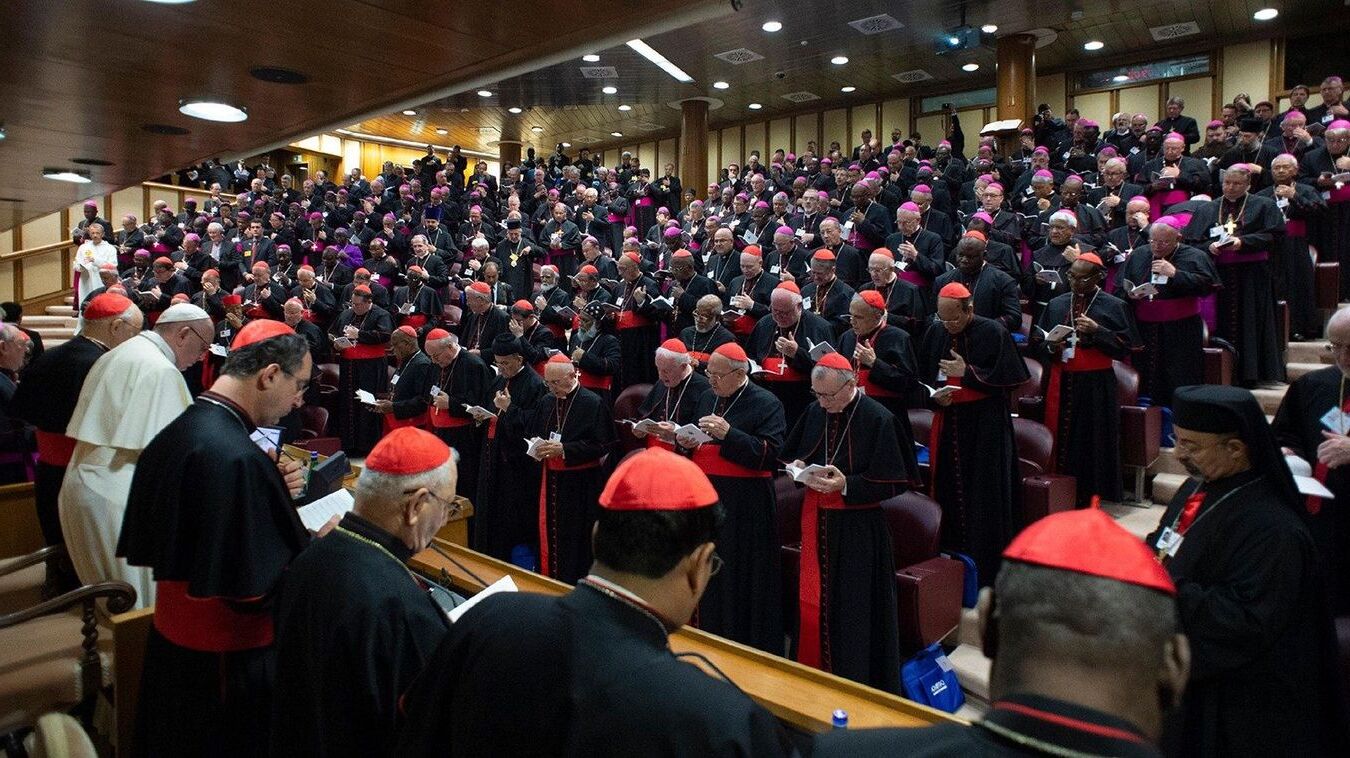
What is Sacred Tradition? Sacred Tradition, often called holy or apostolic tradition, is a cornerstone of Christian theology, especially in Catholic, Eastern Orthodox, and Oriental Orthodox churches. It encompasses the beliefs, practices, and teachings passed down through generations, often orally, and is crucial for interpreting Scripture. Unlike written Scripture, Sacred Tradition provides a living context, ensuring continuity with the apostles' teachings. It includes everything from the early Church's responses to heresies to the practices like praying the Rosary. Understanding Sacred Tradition helps us grasp the full scope of divine revelation and maintain a consistent faith journey.
Understanding Sacred Tradition
Sacred Tradition is a cornerstone of Christian theology, especially within Catholic, Eastern Orthodox, and Oriental Orthodox churches. It encompasses the beliefs, practices, and teachings passed down through generations, often orally, and is essential for interpreting Scripture.
-
Definition of Sacred Tradition
Sacred Tradition is the body of teachings, practices, and customs preserved and transmitted by the Church from the apostles' time to today. It complements Scripture, providing historical and communal context for understanding divine revelation. -
Origin of the Term
The term "tradition" comes from the Latin "trado, tradere," meaning "to hand over." This reflects the idea of passing down beliefs and practices from one generation to the next. -
Capitalization
In theological contexts, "Tradition" is often capitalized to distinguish it from general traditions. This capitalization emphasizes its sacred and authoritative nature.
Sacred Tradition and Scripture
The relationship between Sacred Tradition and Scripture is intricate and vital for a complete understanding of divine revelation.
-
Relationship with Scripture
Sacred Tradition and Scripture are considered one deposit of faith. Both are necessary for a complete understanding of divine revelation, with Scripture providing written records and Tradition encompassing oral teachings and practices. -
Early Christian Response to Gnosticism
Early orthodox Christianity invoked Tradition to counter Gnosticism. Irenaeus of Lyons argued that the "rule of faith" was preserved through the Church's historical continuity with the apostles, emphasizing Tradition's role in maintaining orthodoxy. -
Role in Christian Doctrine
Sacred Tradition serves as a foundation for Christian doctrine and spiritual authority. It provides a framework for interpreting Scripture and ensures teachings are consistent with the apostolic message.
Perspectives on Sacred Tradition
Different branches of Christianity view Sacred Tradition in unique ways, reflecting their theological priorities.
-
Importance in Catholicism
In Catholicism, Sacred Tradition is essential for understanding and accepting other doctrines. For example, the doctrine of the Immaculate Conception is credible only when referenced to Sacred Tradition. -
Eastern Orthodox Perspective
For the Eastern Orthodox Church, Tradition is the deposit of faith given by Jesus to the apostles and passed on through the Church without addition, alteration, or subtraction. It is seen as the constant abiding of the Holy Spirit. -
Lutheran and Reformed Views
Lutheran and Reformed traditions claim that the Bible alone (sola scriptura) is the source for Christian doctrine. They do not deny oral traditions but argue that these teachings are preserved in the Bible as the only inspired medium.
Historical Continuity and Apostolic Tradition
The historical continuity of the Church with the apostles is a key aspect of Sacred Tradition, ensuring the accurate transmission of teachings and practices.
-
Historical Continuity
The Church's historical continuity with the apostles ensures that teachings and practices are passed down accurately and authentically. -
Apostolic Tradition
Apostolic Tradition refers to the teachings and practices passed down by the apostles, including the oral preaching and teaching of Jesus Christ and his apostles. -
Scriptural References
Scripture acknowledges the importance of Tradition. For example, 2 Thessalonians 2:15 states, "So then, brothers and sisters, stand firm and hold fast to the traditions that you were taught by us, either by our spoken word or by our letter" (NRSV).
The Magisterium and Living Tradition
The Magisterium and the concept of living Tradition play crucial roles in maintaining the integrity and relevance of Sacred Tradition.
-
Magisterium's Role
The Magisterium, the teaching authority of the Church, decides authoritatively which truths are part of Sacred Tradition. This ensures teachings are consistent with apostolic doctrine. -
Tradition as a Living Context
Sacred Tradition is not just a collection of static teachings but a living context of faith. It evolves over time as the Church continues to interpret and apply the teachings of Scripture. -
Deeds and Words
Tradition is realized by deeds and words that have an inner unity. The deeds wrought by God in history manifest and confirm the teaching and realities signified by the words, while the words proclaim the deeds and clarify the mystery contained in them (Dei verbum, 2).
Examples and Scholarly Studies
Sacred Tradition includes various practices and has been the subject of scholarly studies, highlighting its significance in Christian theology.
-
Family Traditions
While family traditions are cultural practices passed down through generations, Sacred Tradition is a theological concept encompassing essential beliefs and practices of the Church. -
Connection to Scripture
Many beliefs and practices in Sacred Tradition have their basis in Scripture. However, some do not. For example, the Assumption of Mary is an important belief in the early Church with no direct reference in Scripture. -
Historical Development
The concept of Tradition has been a difficult and divisive one since the Protestant Reformation. This has led to various interpretations and understandings of its role in Christian doctrine. -
Catechetical Attention
Despite its importance, the significance of Tradition is often understated in catechetical texts. This lack of emphasis can lead to a diminished understanding of its role in Catholic faith. -
Recovery of Apostolic Worldview
There is a need to recover the apostolic worldview, not just intellectually but also as a day-to-day attitude towards truth and authority. This involves a deeper understanding and respect for Sacred Tradition. -
Division and Discord
The emphasis on individual interpretations and celebrity catechists can cause division and discord within the Church. It is crucial to maintain the authority of the Magisterium and the historical continuity of Tradition. -
Importance in Moral Theology
Sacred Tradition plays a significant role in moral theology by providing a framework for understanding and applying moral principles. It ensures teachings are consistent with both Scripture and apostolic doctrine. -
Examples of Sacred Tradition
Examples of Sacred Tradition include praying the Rosary, devotions to favorite saints, making the sign of the cross, and other pious customs that have arisen over the centuries. -
Scholarly Studies
Scholars such as Craig A. Evans, James A. Sanders, and Stanley E. Porter have studied how sacred Tradition in the Hebrew Bible was understood and used by New Testament writers to describe Jesus Christ. -
Conclusion
Sacred Tradition is a vital component of Christian theology, providing a rich tapestry of beliefs, practices, and teachings that have been passed down through generations. Its importance lies in its ability to complement Scripture, ensure historical continuity, and guide the Church in its teachings on faith and morals. Understanding and respecting Sacred Tradition is essential for a deep and meaningful Christian faith.
The Importance of Sacred Tradition
Sacred Tradition is a cornerstone of Christian theology, especially in Catholic, Eastern Orthodox, and Oriental Orthodox churches. It’s not just about old customs; it’s a living, breathing part of faith that complements Scripture. This Tradition includes teachings, practices, and beliefs passed down from the apostles, ensuring that the Church stays true to its roots. It’s like a family heirloom, preserving the essence of faith through generations.
Without Sacred Tradition, understanding doctrines like the Immaculate Conception or the Assumption of Mary would be tough. It also plays a crucial role in moral theology, guiding believers in their daily lives. The Magisterium helps keep this Tradition consistent with apostolic teachings, making sure nothing gets lost in translation.
In short, Sacred Tradition is vital for a complete and authentic Christian faith. It’s the thread that weaves together the Church’s past, present, and future.
Was this page helpful?
Our commitment to delivering trustworthy and engaging content is at the heart of what we do. Each fact on our site is contributed by real users like you, bringing a wealth of diverse insights and information. To ensure the highest standards of accuracy and reliability, our dedicated editors meticulously review each submission. This process guarantees that the facts we share are not only fascinating but also credible. Trust in our commitment to quality and authenticity as you explore and learn with us.


